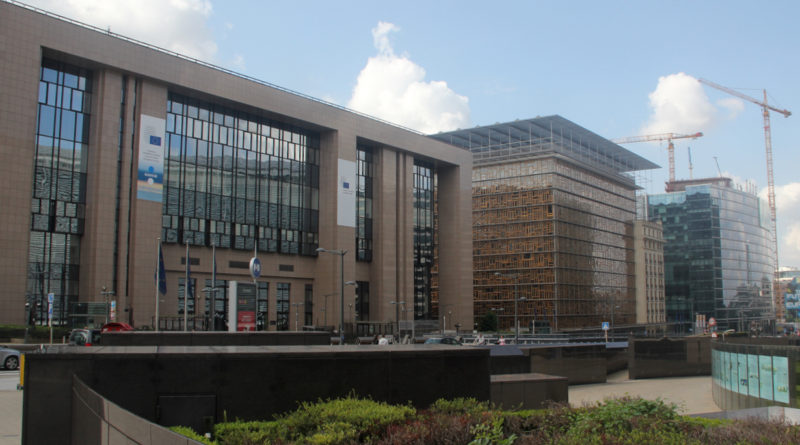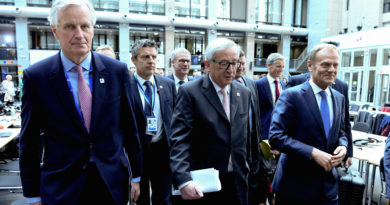Citizens’ rights easiest part of Brexit, says Article 50 author
The agreement on the new status of EU citizens living in the UK and of British elsewhere in the EU is the easy part of Brexit talks, said Lord John Kerr. The former British diplomat argued this is the area where negotiations on the UK exit from the European Union are most advanced. He predicted there will be a deal on this topic, although there are still gaps to cover.
A former UK Permanent Representative to the EU, in 2002 and 2003 Lord Kerr was Secretary General of the European Convention, the body that drafted the European Constitution. The constitution was rejected by referenda in France and the Netherlands. But elements of it, including the Charter of Fundamental Rights and the notorious Article 50 on how a country leaves the bloc, were included in the latest EU Treaty (the Treaty of Lisbon).
Lord Kerr (right) with former French President Valéry Giscard d’Estaing (left), and former Italian Prime Minister Giuliano Amato (centre), president and vice-president respectively of the European Convention.
Lord Kerr made his remarks at an event of the Association of European Journalists in London. In several occasions he has been critical of the UK approach to Brexit, but at the meeting on Friday he qualified the British proposal on the “settled status” of EU citizens as “not bad”. He added, however, that their rights will be “less that they would be anywhere in the EU and less than they are now”, especially when it comes to family reunification. He also said that the British parliament will be able to change these rights in the future, because in the UK no parliament can bind its successors.
Partly to overcome this uncertainty, the EU has requested to maintain the authority of the European Court of Justice in the UK for disputes concerning the rights of EU citizen. But Lord Kerr commented: “I don’t see that happening.”
Another difficulty he identified on this chapter of Brexit talks concerns British nationals in the EU, as the EU wants to recognised their rights only in the country where they reside, not across the EU27.
In his views, however, all these issues will be solved. “It will be relatively easy to agree in October that ‘sufficient progress’ has been made on citizens’ rights, and there will be another 15 months to finalise the remaining points,” said Lord Kerr.
Citizens’ rights, the Irish border and the settlement of finances are the three areas where there should be “sufficient progress” before discussion begins on a future EU-UK trade agreement, according to the EU. The decision on moving to this stage was expected at the European Council in October but it may be delayed due to the impasse on Northern Ireland and the financial bill.
Lord Kerr found “paradoxical” that negotiations started with a discussion on finances, the most difficult topic on the table. He believes this was a mistake by the EU, driven by too many declarations in Britain that the UK should not pay and by the lack of a British proposal on a framework agreement.
The financial bill and the future immigration system are also the biggest threats to the survival of common research programmes and Erasmus student exchanges in the UK, he added responding to a question.
Claudia Delpero © all rights reserved.
Top photo: EU Council buildings in Brussels © Claudia Delpero.




